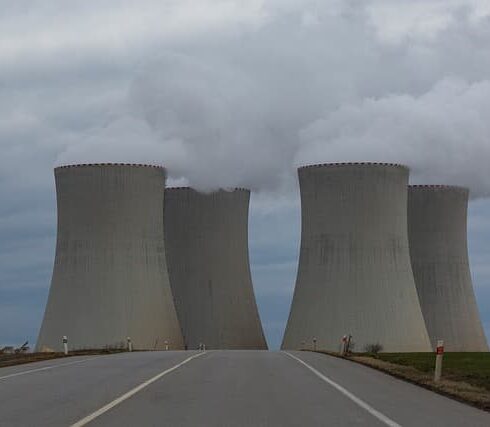Powering the Future: Overcoming Challenges in Integrating Renewable Energy Sources
Integration of renewable energy sources has become a crucial endeavour at a time when sustainability and environmental awareness are at the forefront. Although switching from fossil fuels to renewable energy is not without its difficulties, it offers the possibility of a future that is cleaner and more sustainable. This essay analyses the creative solutions that are advancing us towards a greener future while delving into the challenges of incorporating renewable energy sources.
The Rise of Renewable Energy
Solar Power
Solar power, derived from harnessing the sun’s rays, has experienced an extraordinary surge in adoption. The decreasing expenses associated with solar panels and the continuous advancements in photovoltaic technology have significantly enhanced the feasibility of solar energy, rendering it an increasingly attractive choice for both residential and commercial applications.
Wind Energy
Wind turbines, proudly gracing landscapes across the globe, serve as iconic symbols of the wind energy revolution. By capturing the kinetic energy of the wind and converting it into electricity, this renewable energy source has witnessed substantial expansion, especially in areas blessed with ample wind resources.
Challenges in Integration
Intermittency
The inherent intermittency of renewable energy sources stands as a primary hurdle to their seamless integration. Unlike conventional power sources that maintain consistent output, the availability of sunlight and wind fluctuates, resulting in irregularities in energy production. To overcome this unpredictability and ensure a continuous energy supply, innovative solutions are imperative.
Grid Management
The existing power grid infrastructure was designed around centralised fossil fuel power plants. Integrating decentralised renewable sources requires a fundamental shift in grid management strategies to accommodate the fluctuating nature of these resources.
Storage Solutions
Efficient energy storage is the linchpin to overcoming the intermittency hurdle. Advancements in battery technology and the development of grid-scale energy storage solutions are pivotal in ensuring a consistent power supply.
Technological Innovations
Advanced Grid Systems
The integration of renewable energy necessitates the evolution of grid systems. Smart grids, equipped with advanced monitoring and control capabilities, enable real-time adjustments to match energy supply with demand.
Battery Technology
Breakthroughs in battery technology have revolutionised energy storage. Lithium-ion batteries, along with emerging technologies like solid-state batteries, are pushing the boundaries of energy density and storage capacity.
Smart Grids
Smart grids, equipped with digital communication technology, facilitate seamless coordination between energy producers and consumers. This intelligent network enables efficient energy distribution and demand response.
Policy and Regulation
Government policies and regulations wield significant influence in moulding the energy landscape of our modern world. Their multifaceted impact encompasses a wide array of aspects and is pivotal in orchestrating the shift towards cleaner and more sustainable energy sources. These encompass, but are by no means limited to, incentives geared towards promoting the adoption of renewable energy solutions, the establishment of ambitious emissions targets, and the enforcement of stringent regulations aimed at curbing carbon emissions. Each of these facets, in its own unique way, plays an instrumental role in fostering the transition towards a greener, more environmentally conscious energy paradigm.
Community Engagement
Ensuring active community involvement in the transition to renewable energy sources is of paramount importance. This engagement encompasses a multifaceted approach, encompassing educational initiatives, the establishment of community-owned renewable projects, and the facilitation of transparent communication. Together, these elements serve as fundamental pillars for nurturing a profound sense of ownership and garnering robust support for the renewable energy transition.
Economic Considerations
The practicality of renewable energy has solidified into a tangible and sturdy fact. This shift is emphasized by the diminishing expenses linked to renewable technologies, which, in conjunction with the lasting benefits of reduced environmental impact, firmly position renewable sources as exceptionally competitive alternatives for energy generation in economic terms.
Environmental Impact
The environmental benefits of renewable energy are profound. Reduced greenhouse gas emissions, cleaner air, and a diminished reliance on finite resources all contribute to a healthier planet.
Success Stories
Germany’s Energiewende
Germany’s Energiewende, or energy transition, is a shining example of a nation’s commitment to renewable energy. Through a combination of policy support, technological innovation, and community engagement, Germany has made significant strides in transitioning to a renewable-powered future.
Denmark’s Wind Power
Denmark stands as a global leader in wind power. Ambitious wind energy projects, coupled with a robust grid infrastructure, have allowed Denmark to achieve impressive milestones in renewable energy generation.
California’s Solar Initiatives
California’s sunny climate has provided an ideal backdrop for the proliferation of solar energy. State initiatives and policies have spurred widespread adoption, making California a trailblazer in solar energy integration.
Global Collaboration
Addressing the challenges of integrating renewable energy is a global endeavor. Collaboration between nations, knowledge sharing, and joint research efforts are imperative in accelerating the transition towards a sustainable energy future.
The Road Ahead
As we navigate the complexities of integrating renewable energy sources, it is evident that the path to a sustainable future is paved with innovation, collaboration, and unwavering commitment. The challenges we face today are opportunities for tomorrow, and together, we have the power to shape a cleaner, brighter world.
Conclusion
The integration of renewable energy sources is not without its hurdles, but it is a journey well worth embarking upon. With technological advancements, supportive policies, and global collaboration, we have the tools at our disposal to overcome these challenges and forge a sustainable future for generations to come.





